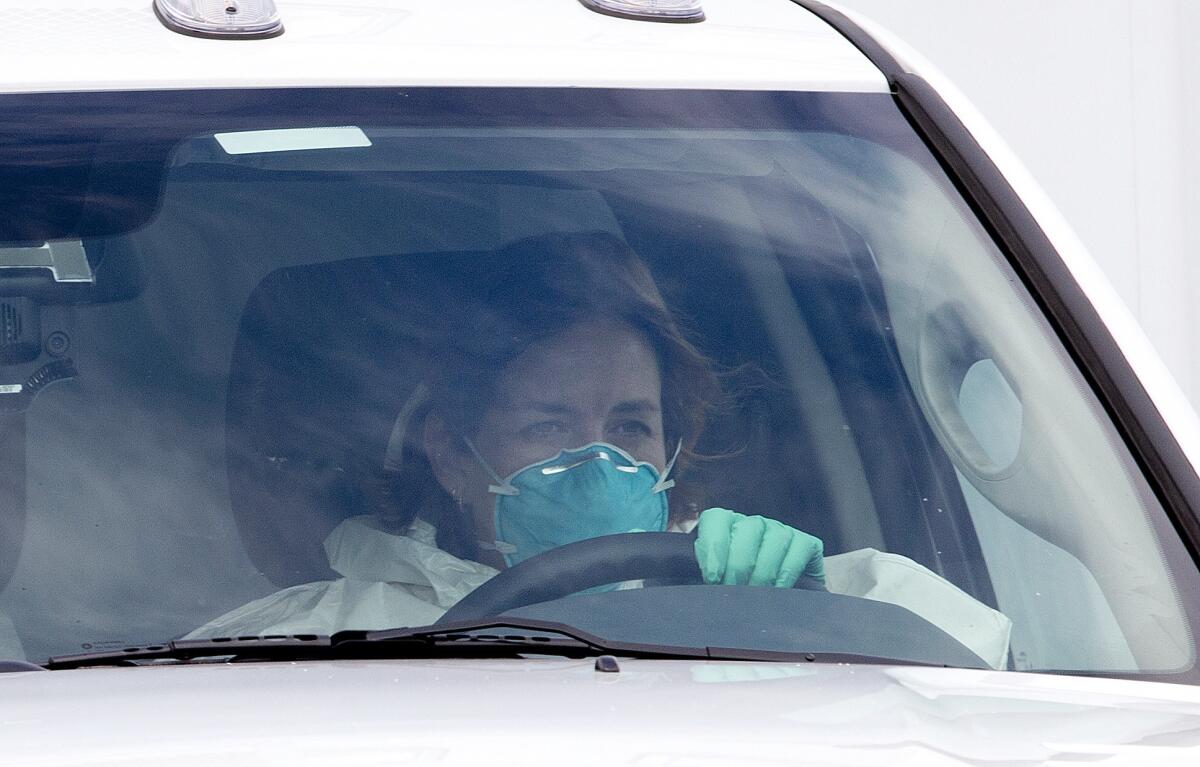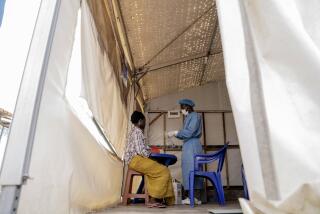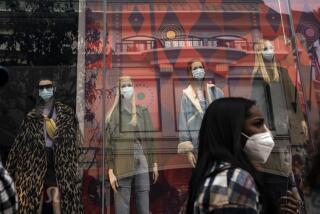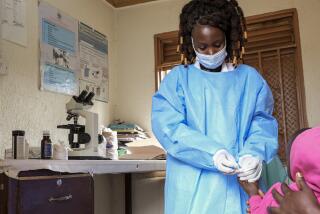Editorial: How to deal with the Ebola outbreak

- Share via
It was a commendable decision — and more unnerving than risky — for Emory University to accept into its hospital two Americans who contracted the deadly Ebola virus while doing humanitarian work in Africa. The arrival of the first patient on Saturday is considered to be the first instance of the virus entering the U.S.— albeit in the care of infectious disease specialists working in an isolation unit built in collaboration with the Centers for Disease Control and Prevention. Officials of the CDC say there is little safety threat and no cause for panic among Americans.
The far greater risk, on both public safety and humanitarian levels, would be to allow the current Ebola outbreak, the largest ever, to continue to rage out of control in West Africa until it spreads elsewhere. That’s what could create a global pandemic. Ebola is not the most infectious serious disease — SARS is more so — but it is the deadliest. Depending on the strain of the virus, the mortality rate can be as high as 90%. The World Health Organzation said Monday that the disease has killed 887 people since March, all but one in Liberia, Sierra Leone and Guinea. One person died in Nigeria and several more people are reportedly sick.
The U.S. and other nations must make it a priority not just to provide medical aid to stricken regions but also to improve the health conditions under which Africans live.
Upgrading Africa’s basic health infrastructure is a long, slow, costly process, one the West has not expressed great interest in undertaking over the years. Perhaps this epidemic will help remind us why it is so important. Meanwhile, in the last few days, the World Health Organization has promised to fly hundreds more medical personnel into West Africa. On Sunday, the U.S. said it would send 50 public health officials.
It’s not just a matter of treating the illness — the earlier treatment is started the better, but there is no cure or vaccine. There are other safety precautions that should be observed. West Africans must be persuaded to stop the burial custom that involves washing bodies. The World Health Organization has for months enlisted local healers, tribal leaders and anthropologists to help encourage people who may be ill to go to hospitals. But that effort must be intensified as this epidemic continues. It’s a matter of convincing desperately scared people — some ill, some not ill yet — that health workers who show up at their doors and sometimes take away loved ones are not angels of death but, in fact, the only chance they have of staying alive.
Follow the Opinion section on Twitter @latimesopinion
More to Read
A cure for the common opinion
Get thought-provoking perspectives with our weekly newsletter.
You may occasionally receive promotional content from the Los Angeles Times.










